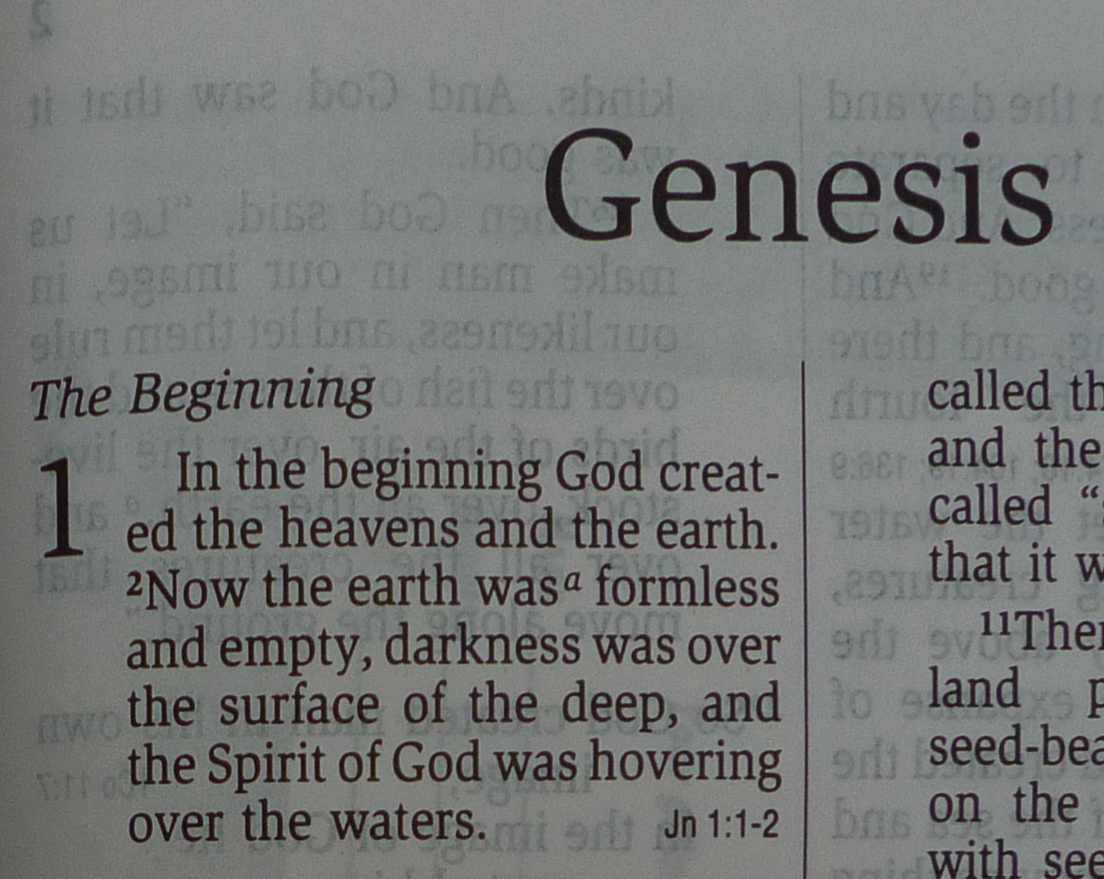Did God Create the Universe and Earth at the Same Time?
Question of the week: How do you answer skeptics like Michael Shermer who assert that the Bible got it wrong from the first verse? They point out that Genesis 1:1 states that God created both the universe and Earth in the beginning. Astronomical observations establish that Earth did not form until more than nine billion years after the universe’s origin. Did the Bible really make such a major error in its first sentence?
My answer: Nearly all English language Bibles translate Genesis 1:1 from the original Hebrew as “In the beginning God created the heavens and the earth.” It is easy to see how twenty-first-century English language readers would interpret “the heavens and the earth” as referring to the universe and our planet.
My first serious read of the Bible occurred at the same time I was trying to become fluent in French. Because of its small vocabulary size, French is a language loaded with idioms. Being aware that biblical Hebrew is also a small vocabulary language, I anticipated that it, too, would possess idioms. Therefore, when I saw the phrase “the heavens and the earth” in the Old Testament’s opening statement, I wondered what this phrase meant in the context of biblical Hebrew. This curiosity motivated me to read through the rest of the Old Testament to see how many other times this phrase occurs and how it is used in such occurrences. I was also curious to see if any of the English translations of the Old Testament I was aware of ever used the word “universe” and, if so, where.
In my search, I never found the word “universe” in any English translation of the Old Testament. Hence, I suspected that biblical Hebrew lacked a word that has universe as its explicit and only definition. That suspicion turned out to be correct. While biblical Hebrew does have a word, shamayim, that could refer to the universe, that word does not do so explicitly and unambiguously. According to the Theological Wordbook of the Old Testament, word reference 2407a,1 shamayim‘s usage falls into two broad categories: (1) the physical heavens, which yield rain, snow, dew, and frost and hold the Sun, Moon, planets, and stars; and (2) the heavens as the abode of God. Therefore, it would come as no surprise that a biblical Hebrew phrase translated as “the heavens and the earth” is an idiom for the physical universe.
I found that the phrase, ha-shamyaim we-et ha-‘eres, translated as “the heavens and the earth” appeared in nine other Old Testament passages: Exodus 20:11, Exodus 31:17, Deuteronomy 4:26, Deuteronomy 30:19, Deuteronomy 31:28, 1 Chronicles 29:11, Jeremiah 23:24, Jeremiah 32:17, and Haggai 2:21. In these nine texts plus Genesis 1:1 the usage of ha-shamyaim we-et ha-‘eres implied that it referred to all physical reality—the totality of matter, energy, space, and time. In other words, it referred to the universe. Therefore, Genesis 1:1 is not claiming that our planet and the universe were created at the same time.
Are there any biblical texts that make a distinction between the starry realm and planet Earth? Yes: Nehemiah 9:6, Psalm 102:25, Isaiah 40:12, Isaiah 40:22, Isaiah 42:5, Isaiah 45:12, Isaiah 45:18, Isaiah 48:13, Isaiah 51:6, Isaiah 51:13, Isaiah 51:16, Jeremiah 4:23, Jeremiah 4:28, Jeremiah 10:12, Jeremiah 31:37, Jeremiah 51:15, Daniel 6:27, Joel 2:10, Joel 2:30, Zechariah 12:1. None of these twenty Bible passages state or imply that the starry realm and Earth have a common origin. Four of these texts, Isaiah 45:12, Isaiah 45:18, Isaiah 48:13, and Isaiah 51:16, describe God’s creating the heavens and forming the earth as two separate events.
Endnote
R. Laird Harris, Gleason L. Archer, and Bruce K. Waltke, eds., Theological Wordbook of the Old Testament (Chicago: Moody Bible Institute, 1980), 935–936.






